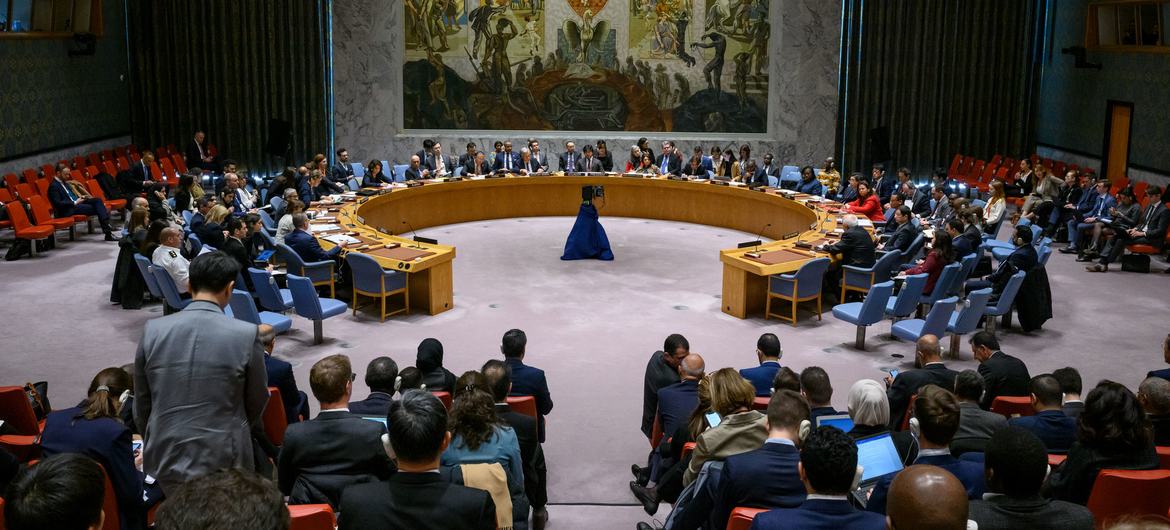The United States vetoed a United Nations Security Council resolution on Wednesday, blocking a call for an immediate cease-fire in Gaza. The vetoed resolution, supported by 14 of the council’s 15 members, including allies Britain and France, sought an unconditional halt to hostilities and the release of hostages held by Hamas. U.S. Deputy Ambassador Robert Wood explained that the resolution’s failure to explicitly link a cease-fire to the hostages’ release was unacceptable, as it risked rewarding Hamas’s tactics and ignoring the plight of over 100 hostages from 20 countries. Despite efforts to find a compromise, the U.S. deemed the resolution flawed.
The veto drew sharp criticism from the Palestinian delegation, with Deputy U.N. Ambassador Majed Bamya expressing outrage over the council’s inaction. He decried the ongoing Israeli offensive in Gaza, which has resulted in over 43,000 Palestinian deaths and widespread destruction, according to Gaza’s health ministry.
Bamya argued that the international community’s failure to demand a cease-fire has enabled continued bloodshed, framing the situation as an existential threat to the Palestinian people and accusing Israel of attempting to annihilate their nation.

U.S. Vetoes U.N. Resolution Calling for Gaza Cease-Fire, Drawing Global Criticism and Heightened Tensions
From Israel’s perspective, the resolution was problematic. Israeli U.N. Ambassador Danny Danon thanked the United States for its veto, stating that the resolution would have led to more terrorism and suffering. He asserted that the real cause of the crisis is Hamas, and the future of Gaza hinges on removing the militant group. Danon praised the U.S. for standing by Israel and called the veto a necessary step to prevent further violence.
Hamas condemned the U.S. decision, accusing it of enabling Israeli aggression against Gaza’s civilian population. The group argued that the veto demonstrated U.S. complicity in the destruction of Gaza and called for an end to such policies. Meanwhile, the U.N.’s elected members emphasized the need for urgent action, reiterating calls for a cease-fire, humanitarian aid, and protection of civilians. They criticized the lack of progress since a June resolution and pledged continued efforts to address the conflict.
Despite the setback, elected members of the Security Council signaled their intention to pursue stronger measures. Algeria’s U.N. ambassador, Amar Bendjama, accused the council of granting Israel impunity and pledged to introduce a new, more forceful resolution under Chapter 7 of the U.N. Charter, which would carry the weight of enforceability. The ongoing crisis in Gaza, marked by massive casualties and destruction, continues to test the council’s ability to act decisively amidst geopolitical divisions.
